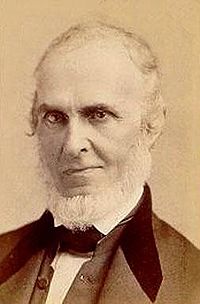| |
|
The old Squire said, as he stood by his gate,
And his neighbor, the Deacon, went by,
"In spite of my bank stock and real estate,
You are better off, Deacon, than I.
"We're both growing old, and the end's drawing near,
You have less of this world to resign,
But in Heaven's appraisal your assets, I fear,
Will reckon up greater than mine.
"They say I am rich, but I'm feeling so poor,
I wish I could swap with you even
The pounds I have lived for and laid up in store
For the shillings and pence you have given."
"Well, Squire," said the Deacon, with shrewd common sense,
While his eye had a twinkle of fun,
"Let your pounds take the way of my shillings and pence,
And the thing can be easily done!"
This poem is in the public domain.
|

John Greenleaf Whittier (1807 - 1892) was one of the "Fireside Poets," called such because their work was popular enough to be read (ostensibly by the fire) in homes all over America. And Whittier was one of those rare poets who actually made a rather comfortable living from the proceeds of his work. Born into a Massachusetts farm family, Whittier was introduced to poetry by one of his school teachers. An avid reader and writer early on, Whittier spent much of his working life as an editor, though he had political aspirations as well. He was a staunch abolitionist, and produced two collections of anti-slavery poems, along with an anti-slavery pamphlet that managed to incur the wrath of both sides and effectively ended any hopes Whittier had of a political career. Critical opinion on the value of Whittier's poetry is mixed. Some dismiss it as overly emotional, while others believe the heartfelt simplicity is precisely its appeal.
|
|
|
There are no comments for this poem yet.
|
|
|




